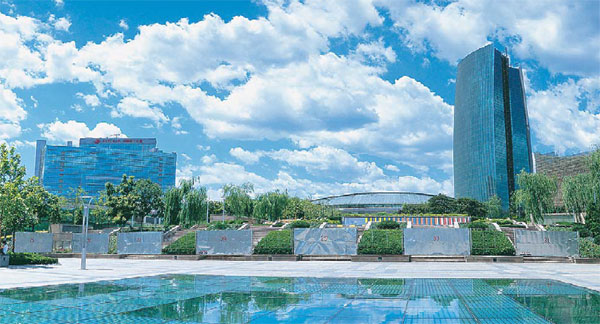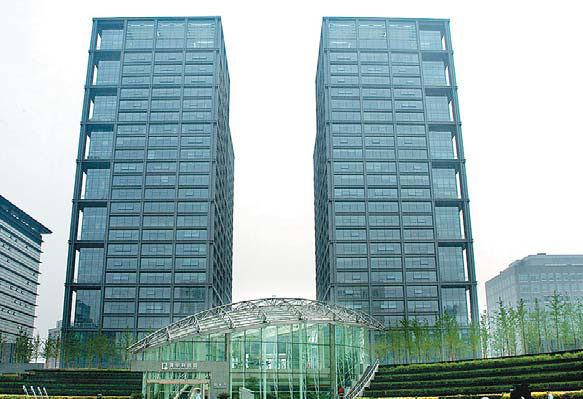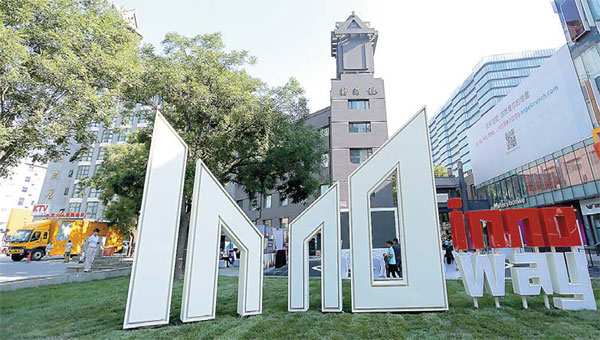

Zhongguancun creates their right environment for 'incubators' that help nurture the next innovations, Liu Xiangrui reports.
Zhongguancun's strong high-tech culture and nurturing environment for startups are creating a large number of new businesses, especially those by pioneers from the younger generation, said Guo Hong, director of the Administrative Committee of Zhongguancun Science and Technology Park.
"Zhongguancun is China's most important center for business startups and we are striving to become a globally influential center for technological innovation," Guo said.
To reach that goal, Zhongguancun has undertaken measures including a blocklong series of buildings with a combined floor space of 230,000 square meters cleared to accommodate startups.
Three organizations specialized in providing startup services have located their central operations on the block, and another 13 have established offices. They receive financial subsidies for office rental and other activities from Guo's committee.
The startup street has cooperative programs with top universities such as Peking University, Tsinghua and MIT. The Entrepreneur's Training Camp for Peking University has moved into its offices on the street, while Tsinghua's X-Lab plans to move.
"An eco-system for business startups has basically taken shape," said Guo.
It now has about 340 business startup groups including 48 teams of students who returned from studying abroad. More than 120 teams have received an average of 5 million yuan ($817,200) of financing.

Incubators
According to Guo, innovative business incubators held 2,244 activities for startup services in Zhongguancun in the first nine months of the year.
The street alone has hosted nearly 200 events that involved 20,000 participants, including more than 50 youth leaders from the United States, Britain, France, and other regions around the world.
According to Guo, the three main forces drive business startups in Zhongguancun - young generation pioneers, universities and research institutes, and ongoing business starters.
According to surveys, 504 of those who started new businesses using 20 active incubators in Zhongguancun graduated from college less than two years ago. Many of them were born after 1990.
The IT industry has the most post-90s generation business starters, who often specialize in big data and artificial intelligence, Guo said.
He added that business startup projects by the post-90s generation are widely favored by venture capitalists.
One of the recipients is Zhang Shishi, founding partner of Renren Ucredit Group, who was financed with $130 million by Trustbridge Partners, a venture capital and private equity firm.
It was the biggest single first-round financing in the IT industry globally. Peak Labs, founded by 21-year-old Ji Yichao, received investment from famous angel investor Xu Xiaoping.
Universities and research institutes in the region have also become important harbors for business startups, Guo said.
Peking University, Tsinghua and Beijing University of Posts and Telecommunications have adopted a series of measures that includes funding, training, incubating services and other support for students who want to start their own businesses.
Some have even turned starting businesses into a career by continuously starting new ones.
"They are courageous enough to start up a new business whether their last attempt was successful or failed," Guo explained.
Guo cited Sun Taoran, who has started five companies. His latest attempt is Lakala, China's biggest provider of community financial and e-commerce services.
Programs and angel investors have provided strong support as incubators integrate innovation and investment to discover and select promising new businesses. Many incubators have established socalled hatch funds.
A total of 2.14 billion yuan has been raised for hatch funds by 17 incubators, with 138 million yuan invested in the first half of the year.
And some entrepreneurs in Zhongguancun see an opportunity in serving startups. Su Di, founder of Garage Cafe, is preparing to build a community for new businesses. Su has leased two buildings that will rent space to business starters and professionals at lower prices.
He said the buildings will become a comprehensive community with space for study, work, accommodation, communication and cooperation.
Garage Cafe endeavors to build a new type of social network that serves business starters both online and offline. With plans for 100 chain outlets in the future, it has received considerable funding from investors including Lei Jun, founder and president of the tech company Xiaomi.
 |
|
Pioneers from the younger generation say they have found a home in Zhongguancun. Photos Provided to China Daily |
 |
|
The Tsinghua Science Park, backed by the prestigious university of the same name, is one of the many top academic and higher learning institutes in China. |
 |
|
Innovation Street has an array of support policies to help fledgling businesses. |